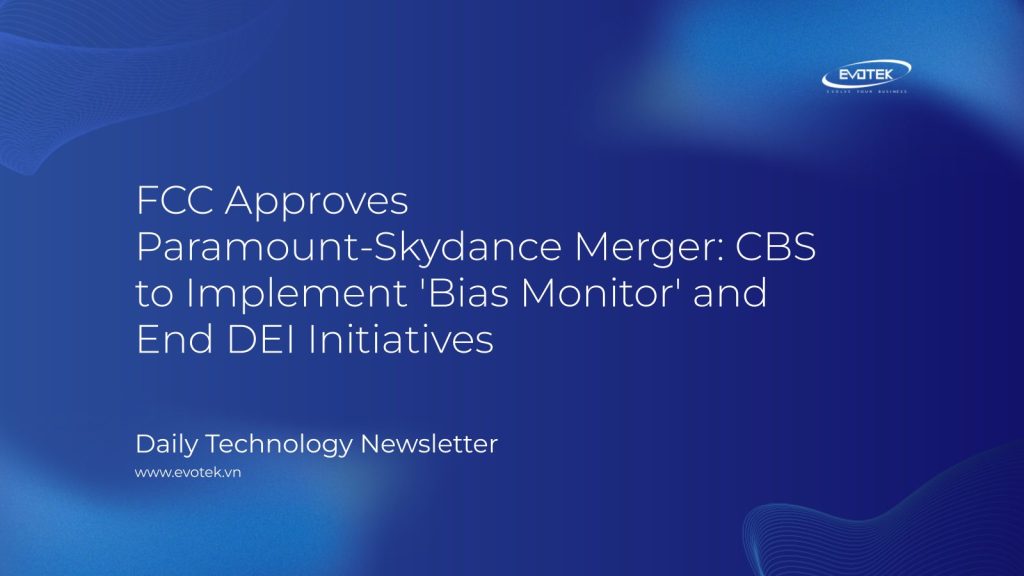The Federal Communications Commission (FCC) has given its final approval to an $8 billion merger between Paramount and Skydance. This significant deal comes with a controversial stipulation: CBS, owned by Paramount, will reportedly be required to appoint an ombudsman tasked with monitoring the media company’s political biases and ensuring “fact-based reporting.”
FCC Commissioner Brendan Carr has publicly championed these conditions, framing them as crucial steps to restore public trust in legacy media and address what he describes as “invidious forms of DEI” (Diversity, Equity, and Inclusion).
New Oversight for CBS News Content
During an appearance on Newsmax, Commissioner Carr stated, “They made commitments to address bias and restore fact-based reporting. I think that’s so important.” He emphasized that the American public no longer trusts traditional broadcasters, suggesting that these new commitments, if upheld, would be a major victory. Carr detailed that CBS has agreed to “ending invidious forms of DEI,” a move that aligns with broader political rhetoric often used to critique diversity initiatives.
A key element of the agreement involves the appointment of an ombudsman for a two-year period. Carr described this role as a “bias monitor” who would report directly to “the president.” While Skydance’s letter to the FCC indicated the ombudsman would report to the president of Paramount, Carr’s phrasing has led to speculation regarding whether he implied the President of the United States, Donald Trump, could have influence over the position. CBS and the FCC have yet to comment on this clarification.
First Amendment Concerns and Recent Precedent
Critics argue that such a mandate on a media organization could be perceived as an unprecedented violation of First Amendment rights, potentially allowing political influence over news content. This development follows a period of heightened tension between former President Trump and CBS.
Notably, Trump had previously sued CBS News over a 60 Minutes interview with then-Democratic nominee Kamala Harris, falsely claiming it was deceptively edited. Paramount, CBS News’ parent company, ultimately settled with Trump for $16 million, a settlement satirically described by late-night host Stephen Colbert as a “big fat bribe.” Just days after Colbert’s criticism, CBS announced the cancellation of his show, a move celebrated by Trump.
Business Decisions or Political Influence?
When questioned about the cancellation of Stephen Colbert’s show, Carr insisted it was a “business decision” made by CBS, despite Colbert holding the number one spot in his time slot. Carr suggested that late-night shows, including Colbert’s, are “staring irrelevance in the face” and that the industry needs a “course correction” due to declining public trust in mainstream media.
However, the sole remaining Democratic commissioner on the FCC, Anna Gomez, sharply criticized the merger approval, labeling it a “cowardly capitulation to this Administration.” Carr, when asked about a potential quid pro quo, sidestepped the direct question, instead asserting that President Trump is “fundamentally reshaping the media landscape” by directly challenging legacy broadcast outlets.
The Future of Broadcast Media
The implications of this merger approval and its attached conditions are far-reaching for the future of media independence. The mandated “bias monitor” and the commitment to review DEI initiatives suggest a new era of potential governmental oversight over broadcast content. This could empower political figures with significant influence over what is aired on major networks, fundamentally altering the landscape of news and entertainment.

 日本語
日本語 한국어
한국어 Tiếng Việt
Tiếng Việt 简体中文
简体中文